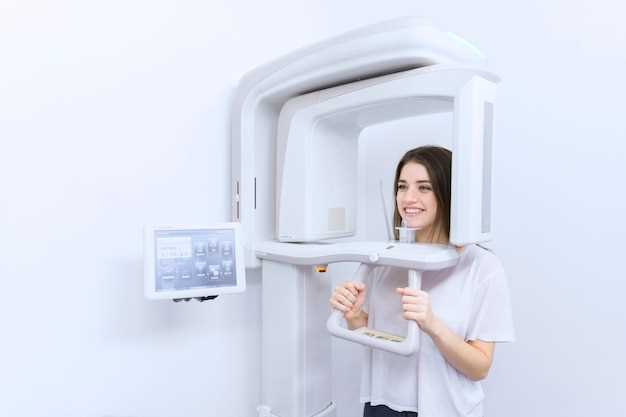
Are you searching for a solution to enhance your emotional well-being while boosting your mental health? Look no further! Discover the power of the remarkable combination that can help you conquer the challenges you face every day.
Unlock your full potential and explore new horizons with our innovative approach. Our experts have designed a unique method that combines the benefits of two extraordinary components. Experience a transformation like never before.
Improve your mood and enhance your overall mental balance with this groundbreaking solution. Say goodbye to the limitations that hold you back and unlock the secrets to a happier and healthier life.
Understanding the Essence of SSRI Enhancement

In this section, we will explore the fundamental principles underlying the process of SSRI enhancement. You will gain a comprehensive understanding of how certain medications, like bupropion, can amplify the effects of SSRI therapy.
Breaking Down SSRI Augmentation
SSRI enhancement refers to the practice of augmenting the effects of Selective Serotonin Reuptake Inhibitors (SSRIs) with the help of supplementary medications. By introducing medications like bupropion, healthcare professionals aim to enhance the overall therapeutic efficacy in individuals who do not achieve optimal results with SSRIs alone.
By combining the unique mechanisms of both SSRIs and bupropion, certain individuals could potentially experience improved symptom relief, increased remission rates, and an overall enhancement in their quality of life.
The Role of Bupropion in SSRI Augmentation Therapy
Bupropion, commonly referred to as a norepinephrine-dopamine reuptake inhibitor (NDRI), acts on different neurotransmitters in the brain than SSRIs. While SSRIs primarily target serotonin, bupropion affects the reuptake of both norepinephrine and dopamine.
This complementary effect is crucial in SSRI augmentation therapy as it addresses multiple neurotransmitter systems concurrently, potentially leading to more comprehensive symptom improvement. Bupropion’s unique mechanism of action can enhance antidepressant effects, mitigate side effects, and provide a synergistic effect when used alongside SSRIs.
To better understand the role of bupropion in SSRI augmentation therapy, let’s examine its benefits and considerations:
| Benefits | Considerations |
| 1. Enhanced therapeutic response | 1. Individual variations in treatment response |
| 2. Improved symptom relief | 2. Potential drug interactions |
| 3. Increased remission rates | 3. Adverse effects and precautions |
| 4. Addressing treatment-resistant depression | 4. Personalized medication approach |
By considering the benefits and potential considerations, healthcare professionals can make informed decisions when implementing bupropion as part of SSRI augmentation therapy.
Overall, understanding the concept of SSRI enhancement and the role of bupropion offers valuable insights into how healthcare providers can optimize treatment outcomes in individuals with various mental health conditions.
The role of bupropion in enhancing SSRI therapy
When it comes to optimizing SSRI therapy, finding effective ways to enhance its benefits is crucial. One such approach is the inclusion of bupropion, a medication that has been shown to have a complementary role in improving the effectiveness of SSRI treatment.
Understanding the synergy between bupropion and SSRI

Combining bupropion with SSRI medication can lead to a synergistic effect, resulting in better overall outcomes for individuals dealing with certain mental health conditions. By utilizing these two medications together, the treatment approach can potentially target multiple aspects of the disorder simultaneously, offering a more comprehensive solution for patients.
Bupropion as an adjunct to SSRI therapy
Bupropion, also known by its brand names, not only acts as a selective norepinephrine and dopamine reuptake inhibitor but also provides a unique mechanism of action that complements the effect of SSRI medications. By targeting different neurotransmitters in the brain, bupropion can contribute to a more well-rounded treatment that addresses various symptoms associated with the condition.
Benefits of incorporating bupropion in SSRI augmentation therapy
By adding bupropion to an SSRI regimen, patients may experience a range of benefits. These can include enhanced mood stabilization, improved focus and concentration, and alleviation of certain side effects that may be associated with SSRIs alone. The combined approach of these medications has shown promise in promoting a more balanced psychological state and better overall quality of life.
In conclusion, the strategic combination of bupropion with SSRI medication can serve as a powerful tool in optimizing treatment outcomes for certain mental health disorders. The unique properties of bupropion, when used in conjunction with SSRIs, offer a comprehensive approach to address different aspects of the condition, improve symptom management, and enhance overall well-being.
Considerations before initiating combination therapy with bupropion and selective serotonin reuptake inhibitors (SSRIs)
Before starting the combination therapy of bupropion and SSRIs, it is important to take certain factors into consideration. These considerations aim to ensure the safety and efficacy of the treatment, as well as optimize the potential benefits for patients.
1. Medical History: Thoroughly evaluate the patient’s medical history, taking into account any previous or current medical conditions, allergies, or sensitivities to medications. This will help identify potential contraindications or precautions that may need to be addressed.
2. Drug Interactions: Evaluate the potential drug interactions between bupropion and the SSRIs being considered for combination therapy. Assess the patient’s current medication regimen, including any other antidepressants or psychotropic medications, to minimize the risk of adverse effects or interactions.
3. Monitoring: Establish a plan for close monitoring of the patient during the initial stages of combination therapy. Regular assessments of vital signs, mental health status, and potential side effects are essential to ensure patient well-being and treatment efficacy.
4. Individual Response: Recognize that each patient may respond differently to combination therapy. Consider the patient’s previous response to SSRIs, bupropion, or other augmentation strategies in order to tailor the treatment plan accordingly.
5. Side Effect Profile: Educate patients on possible side effects associated with the combination therapy. Discuss common side effects, such as nausea, insomnia, or changes in appetite, as well as the importance of reporting any unusual or severe adverse reactions immediately.
6. Patient Education: Provide detailed information to patients about the rationale behind combining bupropion with an SSRI, including the potential benefits and risks. Encourage active involvement in their treatment plan and emphasize the importance of medication adherence and regular follow-up appointments.
7. Alternative Approaches: Consider alternative treatment options for patients who may have contraindications or are not suitable candidates for combination therapy. Individualize treatment plans based on patient characteristics, preferences, and clinician judgment.
By carefully considering these factors, clinicians can make informed decisions when initiating combination therapy with bupropion and SSRIs, enhancing treatment outcomes for patients struggling with depression and related conditions.
